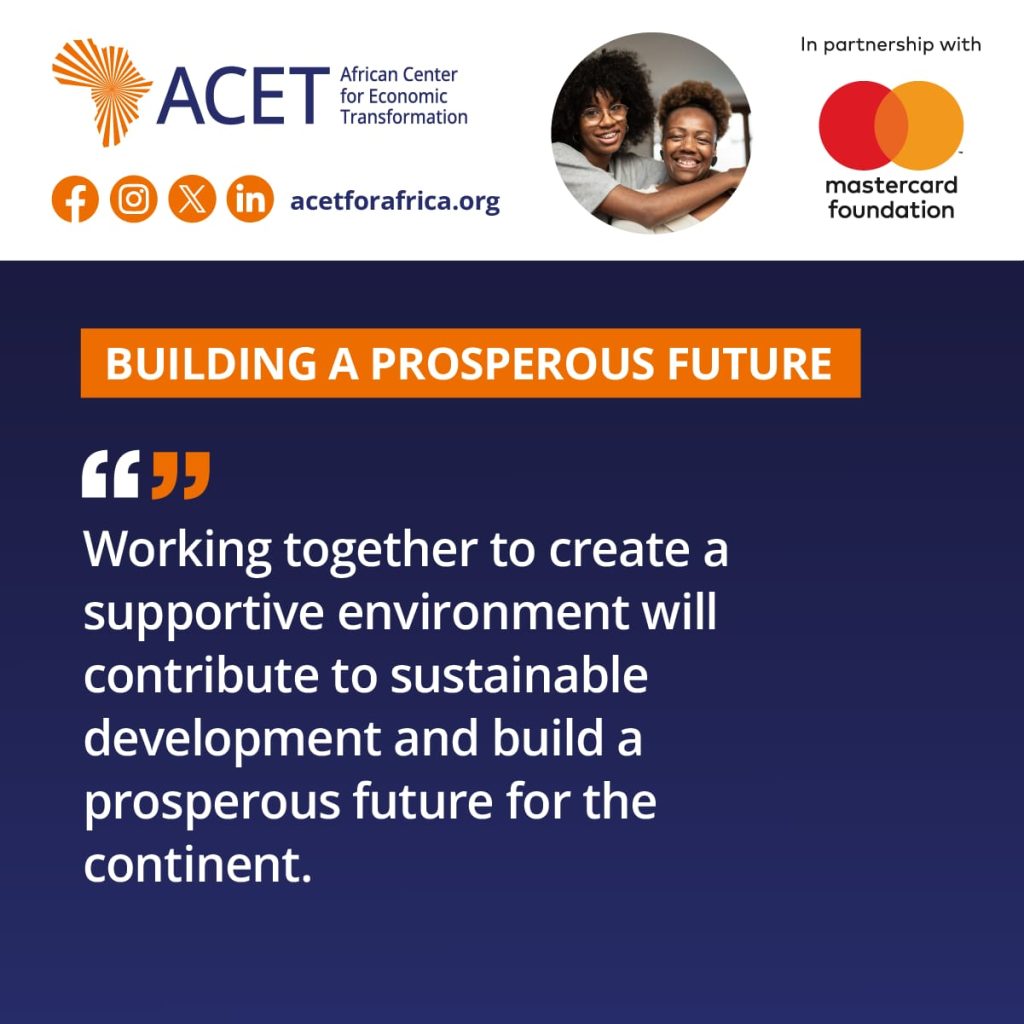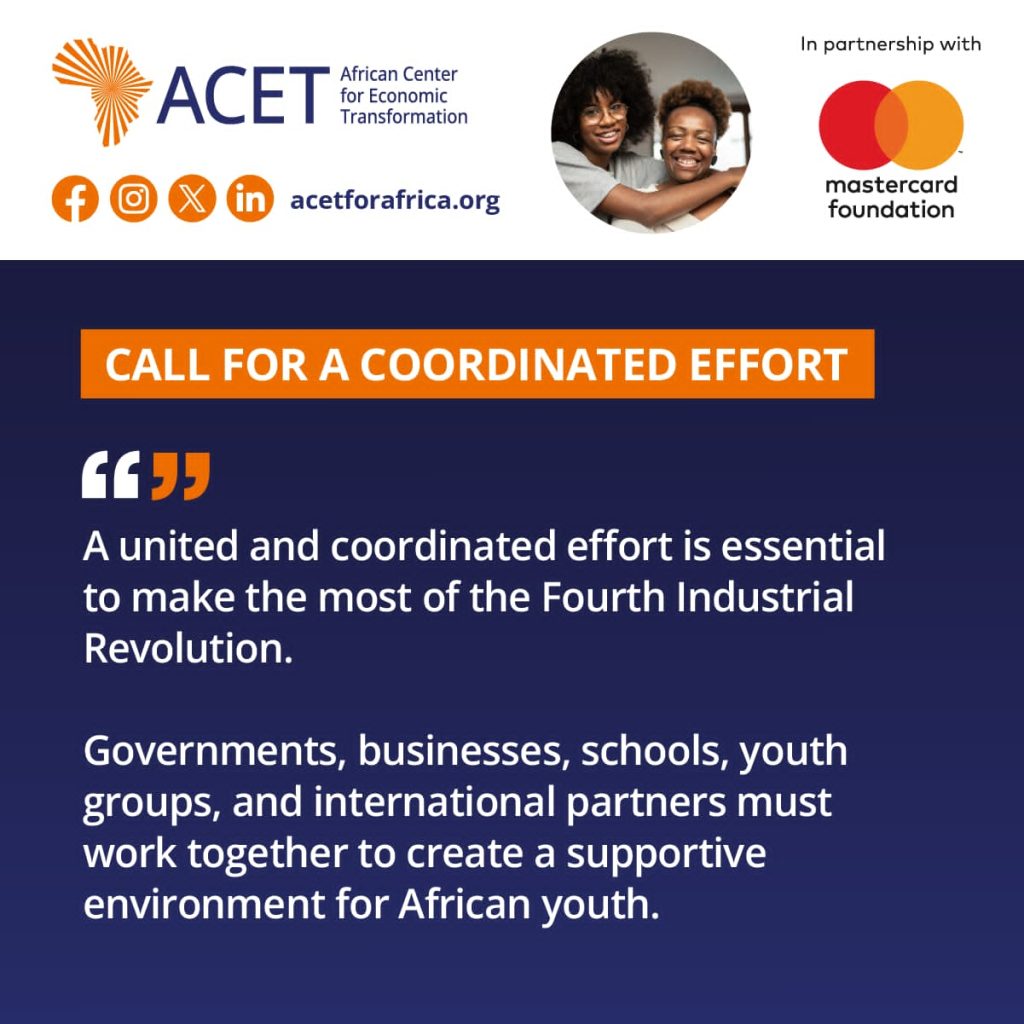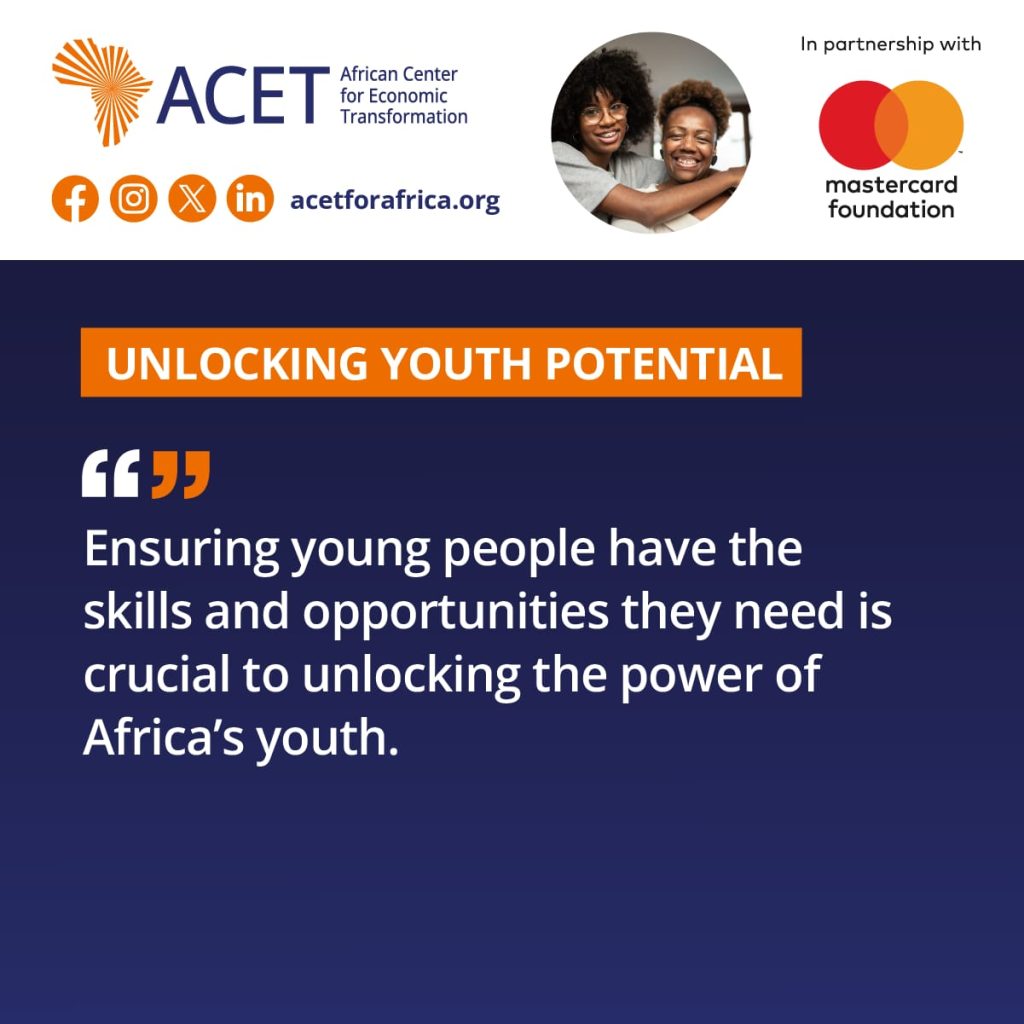Youth Without Boarders Ghana had the previledge of partnering African Centre for Economic Transformation for an intergenerational dialogue on the theme using school-to-work transition schemes to better prepare young people for work.

In this partnership dialogue, key stakeholders such as: Ogunbadejo Abimbola (Medical student, Nigeria), Bright Antwi Frimpong (NSP. Sepe Bukom Health Center), Fayza Kedir (CEO and Founder, Bina pads Enterprise, Ethiopia), Hon. Osei Assibey Antwi (ED NSS Ghana), Florence Yaakugh, Hamdi Ali (CEO and Founder, Jinaw Fashion and Branding), Fungai Jacqueline Kiwa, Ethan Kafwaru (Expert video /photo content creator, South Africa), Cheif Moomen (Founder, Mansa world Ghana), Francisca Asare (Advocate, curious minds, Ghana), and Kwaku Asetena – Krah (placement and internship coordinator, open labs), converged to address the pivotal role of School-to-Work Transition Schemes in equipping African youth with the requisite skills and experiences for successful integration into the workforce. The discourse highlighted the significance of these programs in mitigating youth unemployment and fostering economic development across Africa. Amidst diverse perspectives, the dialogue highlighted the challenges affecting the efficacy of such schemes and proposed actionable strategies.

The areas considered for this dialogue included, 1) Enhancing skills and sustainability of school to work transition programs, 2) Enhancing school to work transition schemes for youth in the creative industry, and 3) Enhancing school to work transition schemes for youth in informal sectors, youth not in education, employment, and training.
Key among the challenges discussed at the webinar was underfunding of youth development programs and young people’s self-help initiatives, poor or inconsistent implementation of programs and projects, and political and external interference. These challenges according to the panellist have constrained the scalability and sustainability of School-to-Work Transition Schemes, limiting their reach and efficacy in addressing youth unemployment.
Some of the strategies outlined towards enhancing the efficiency of skills and sustainability of school-to-work transition programs included; structural reinforcement, resource mobilization, capacity building, youth centric approach, and partnership synergies.

By establishing clear frameworks and standardized protocols, the panalists believe School-to-Work Transition Schemes can enhance coherence and effectiveness, ensuring alignment with broader socio-economic objectives. Collaborative efforts among stakeholders, including governments, private sector entities, and international organizations, are essential for mobilizing adequate resources to sustain and expand these programs.
The resource persons stressed the relevance of investing in training and capacity-building initiatives for educators, mentors, and program administrators. This according to them can bolster the quality and relevance of skills imparted through School-to-Work Transition Schemes. They also called for engagement of youth voices in the design and implementation of these schemes coupled with a synergy and strategic partnerships across sectors, these they believe will ensure the programs are tailored to their needs, aspirations, and socio-economic context.

In conclusion, as Africa navigates the complexities of a rapidly evolving global economy, the imperative to empower its youth through effective School-to-Work Transition Schemes has never been more pronounced. By addressing the challenges of underfunding, poor implementation, and political interference, while embracing strategies to enhance efficiency and inclusivity, stakeholders can collectively propel the continent towards a future where every young person has the opportunity to realize their full potential and contribute meaningfully to sustainable development.
This report encapsulates the collective insights and commitments emanating from our partnership dialogue, serving as a catalyst for concerted action towards realizing the transformative promise of School-to-Work Transition Schemes in Africa.